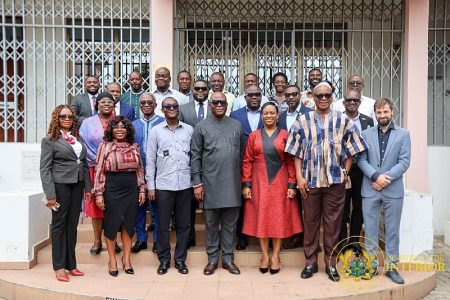The United Nations has issued a clarion call for governments worldwide to accelerate the transition from fossil fuels to clean energy, emphasizing the need for bold and coordinated action to ensure a just and equitable shift. This call to action is underscored by a new UN report, “Seizing the Moment of Opportunity,” which highlights the urgency of the situation and outlines six priority actions for governments to adopt. While acknowledging the progress already made in the clean energy sector, the report emphasizes that the current pace of transition is insufficient and riddled with inequalities, particularly impacting developing nations like those in Africa. The UN stresses the importance of policy coherence, clarity, and certainty from governments, urging them to align policies, incentives, and resources to expedite this critical transition.
The report’s core message centers on the need for decisive governmental action to drive the clean energy revolution. It calls for substantial investments in modern energy infrastructure, advocating for renewable energy sources to power burgeoning sectors like artificial intelligence. Crucially, the report emphasizes the importance of prioritizing fairness and placing people at the heart of climate action, recognizing the potential for the transition to exacerbate existing inequalities if not managed carefully. Failure to implement these recommended actions, the report warns, will result in a slow and uneven transition, jeopardizing global efforts to mitigate climate change and potentially widening the gap between developed and developing nations.
Despite the urgency of the situation, the report points to significant positive developments in the clean energy arena. Global investments in clean energy have surged, exceeding $2 trillion in 2024 alone, nearly double the amount invested in fossil fuels. Renewable energy sources like wind and solar are becoming increasingly cost-competitive, offering the cheapest electricity generation options in many regions. Furthermore, the clean energy sector is proving to be a significant job creator, surpassing the number of jobs in the fossil fuel industry globally. These trends underscore the growing economic viability and potential of clean energy, providing a compelling case for accelerated investment and policy support.
However, the report highlights stark disparities in the distribution of these advancements. Africa, despite boasting some of the world’s most abundant solar resources, receives a disproportionately small share of the global clean energy investment, accounting for a mere 1.5% of global renewable energy capacity. This disparity underscores the need for targeted interventions to ensure that developing nations, particularly those in Africa, are not left behind in the global clean energy transition. The UN report attributes this disparity, in part, to inconsistent government policies in many countries, including Ghana.
The report criticizes governments for sending mixed signals by simultaneously announcing ambitious climate goals and continuing to subsidize fossil fuels. These contradictory policies create an uncertain investment environment, hindering the attraction of the capital and technology necessary for the development of robust green energy sectors in developing countries. This lack of policy clarity undermines the potential for transformative change and perpetuates reliance on unsustainable energy sources, ultimately hindering the global transition to a cleaner energy future. The UN calls upon governments to resolve these contradictions and implement consistent policies that incentivize clean energy investment and facilitate a just transition for all.
The UN report, “Seizing the Moment of Opportunity,” developed by the UN Secretary-General’s Climate Action Team with contributions from reputable international organizations such as the International Energy Agency, IRENA, the World Bank, and the IMF, provides a comprehensive analysis of the current state of the clean energy transition. It identifies key opportunities and challenges, offering actionable recommendations for governments and stakeholders to accelerate the shift towards a sustainable energy future. The report emphasizes the urgency of action, highlighting the potential for significant economic, social, and environmental benefits associated with a rapid and equitable clean energy transition. It underscores the need for global cooperation and concerted efforts to ensure that all nations, regardless of their level of development, can participate in and benefit from the transformative potential of clean energy.














